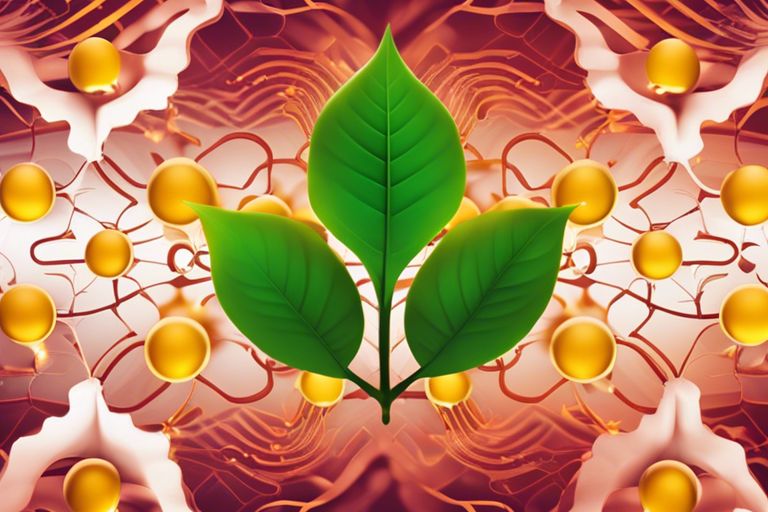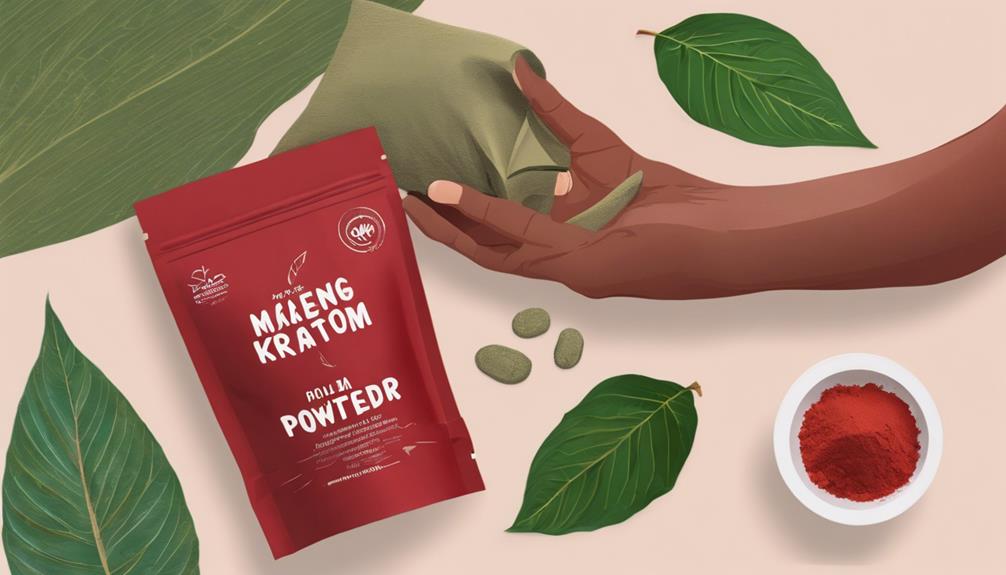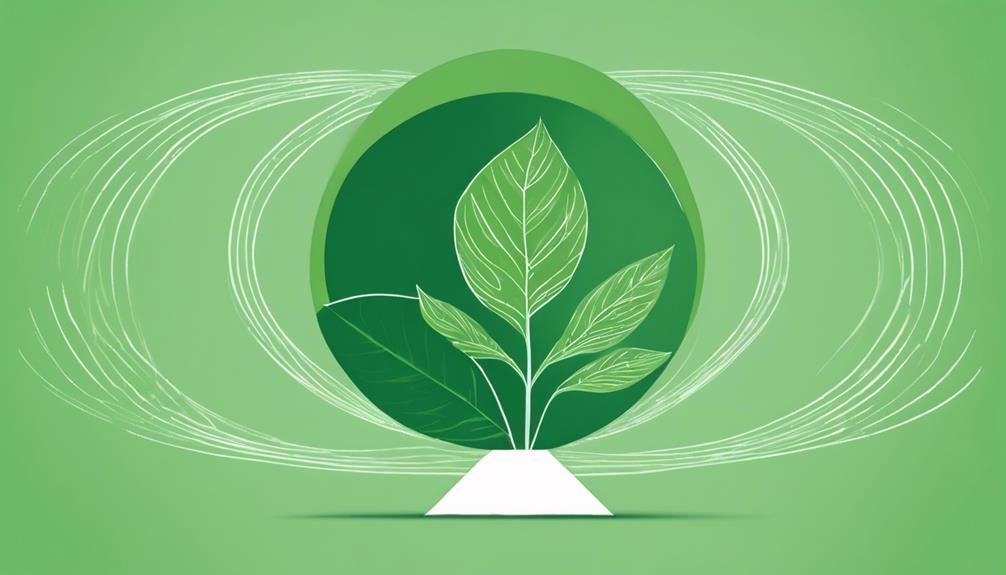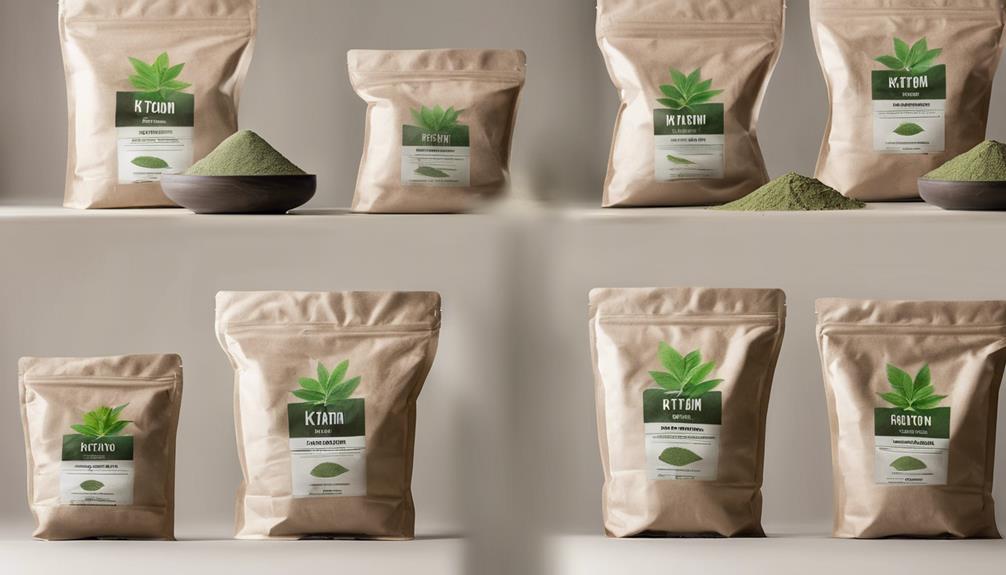You may be curious about how kratom affects dopamine levels in your brain. Kratom, a plant native to Southeast Asia, has gained popularity for its potential health benefits, including mood enhancement and pain relief. In this informative post, we will explore the impact of kratom on dopamine, a neurotransmitter crucial for mood regulation and pleasure sensations. By the end, you’ll have a better understanding of how kratom interacts with dopamine in your brain.
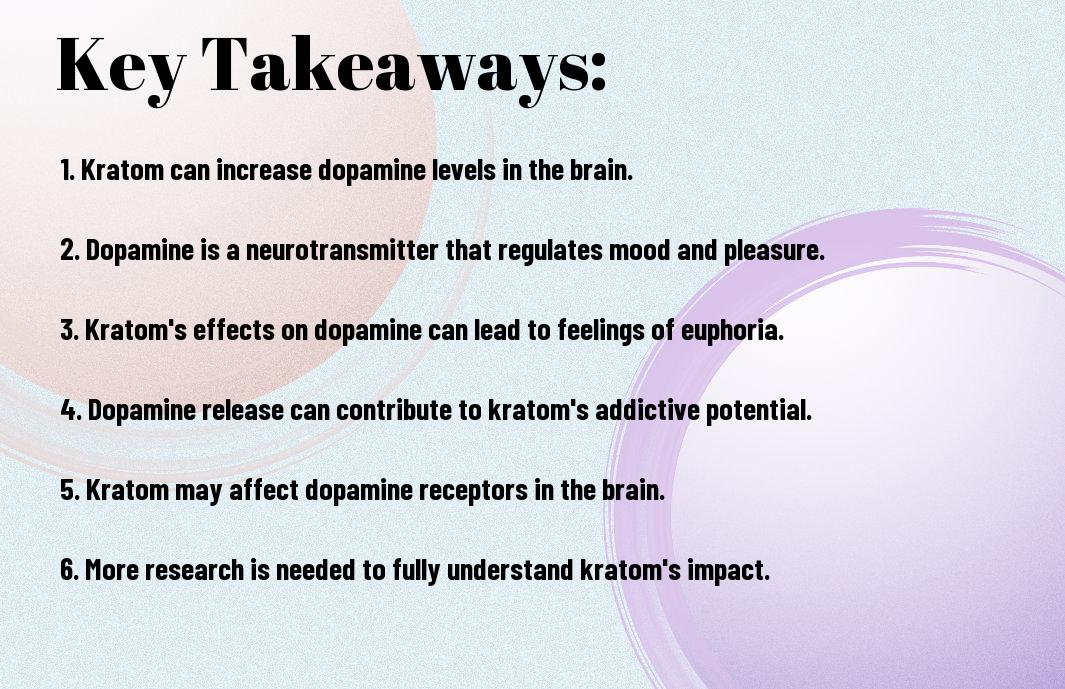
Dopamine Basics
What is Dopamine?
While you may have heard of dopamine in the context of pleasure and reward, it’s actually a neurotransmitter that plays a crucial role in various brain functions. Dopamine is a chemical messenger that helps transmit signals in the brain and other areas of the body. It is involved in regulating movement, emotion, motivation, and the feeling of pleasure. Dopamine also plays a role in cognitive functions such as attention and learning.
Role of Dopamine in the Brain
For the brain to function properly, it needs the right balance of dopamine. Dopamine is produced in several areas of the brain, including the substantia nigra and the ventral tegmental area. These regions are involved in regulating emotions, decision-making, and movement. Dopamine helps control the brain’s reward and pleasure centers, influencing your motivation and feelings of enjoyment.
Plus, dopamine is also linked to addiction. When you engage in activities that make you feel good, such as eating delicious food or receiving praise, your brain releases dopamine. This surge of dopamine reinforces the behavior, making you more likely to repeat it in the future. In this way, dopamine plays a crucial role in shaping your habits and behaviors.
Kratom Overview
What is Kratom?
Any discussion about kratom and its effects on dopamine must begin with an understanding of what kratom is. Kratom is a tropical tree native to Southeast Asia, belonging to the coffee family. The leaves of the kratom tree have been used for centuries in traditional medicine for their stimulant and pain-relieving properties.
On consumption, kratom interacts with receptors in the brain to produce various effects, including pain relief, relaxation, and increased energy. These effects are attributed to the active compounds found in kratom, such as mitragynine and 7-hydroxymitragynine.
History and Traditional Use
One interesting aspect of kratom is its long history and traditional use in Southeast Asia. For centuries, communities in countries like Thailand, Malaysia, and Indonesia have utilized kratom leaves for their medicinal properties. Kratom was often consumed by manual laborers to combat fatigue and increase productivity.
For instance, farmers in Thailand would chew kratom leaves to alleviate muscle aches and boost their energy levels while working in the fields. Over time, kratom became integrated into various cultural practices and traditional rituals in Southeast Asia.

The Connection Between Kratom and Dopamine
How Kratom Affects Dopamine Levels
Unlike many other substances that directly interact with dopamine receptors in the brain, kratom works in a unique way. When you consume kratom, its active compounds interact with opioid receptors in the brain, leading to the release of dopamine. This release of dopamine is what contributes to kratom’s mood-boosting and euphoric effects.
The Science Behind Kratom’s Dopamine Effect
An crucial aspect of kratom’s impact on dopamine levels lies in its ability to modulate the brain’s reward system. By influencing dopamine release, kratom can create feelings of pleasure and relaxation. Additionally, kratom’s alkaloids, particularly mitragynine and 7-hydroxymitragynine, play a significant role in this process.
The alkaloids in kratom are structurally similar to opioids, which allows them to interact with opioid receptors and influence dopamine levels. This interaction is what sets kratom apart from other natural substances and pharmaceutical drugs that affect dopamine pathways. The modulation of dopamine through the opioid system is what underlies kratom’s potential for providing relief from pain and enhancing mood.
The Effects of Kratom on Dopamine Receptors
Activation of Dopamine Receptors
Effects of Kratom on dopamine receptors involve its interaction with the brain’s reward system. When you consume Kratom, the active compounds in the plant bind to dopamine receptors in the brain. This binding triggers a cascade of effects that can influence your mood, motivation, and pleasure sensations.
Increased Dopamine Release
Effects of Kratom on dopamine also include the increased release of dopamine in the brain. Dopamine is a neurotransmitter associated with feelings of pleasure and reward. When Kratom interacts with dopamine receptors, it can lead to a surge in dopamine levels, producing feelings of euphoria and well-being.
Understanding how Kratom affects dopamine release can help explain its potential for addiction and abuse. The heightened dopamine activity caused by Kratom can create a sense of dependence, where your brain craves the substance to experience the same pleasurable effects. This can lead to a cycle of increasing Kratom consumption to maintain dopamine levels, potentially leading to addiction.
The Benefits of Kratom’s Dopamine Boost
Improved Mood and Motivation
Keep in mind that kratom’s impact on dopamine levels can lead to an improved mood and increased motivation. An elevation in dopamine can help you feel more positive and driven to tackle tasks and activities that you may have previously found challenging.
Enhanced Focus and Concentration
Any increase in dopamine from kratom consumption can also result in enhanced focus and concentration. This neurotransmitter plays a crucial role in cognitive function, allowing you to stay alert and attentive to the tasks at hand.
With improved focus and concentration, you may find it easier to concentrate for longer periods, maintain productivity throughout the day, and efficiently complete tasks that require sustained attention.
Reduced Stress and Anxiety
Dopamine’s effect on your brain can help alleviate feelings of stress and anxiety. When dopamine levels are in balance, you may experience a sense of calmness and relaxation, making it easier to navigate daily stressors and challenges.
It’s important to note that while kratom can help reduce stress and anxiety through its impact on dopamine, it is vital to use this herb responsibly and in moderation to avoid potential adverse effects.
Potential Risks and Side Effects
For What is kratom? The risks and benefits of the herbal product, it is imperative to be aware of the potential risks and side effects associated with kratom use. While kratom may affect dopamine levels in your brain, leading to various effects, there are several risks to consider.
Dopamine Imbalance
Risks associated with dopamine imbalance from kratom use include mood swings, decreased motivation, and potential substance abuse disorders. Kratom’s interaction with dopamine receptors in your brain can lead to an imbalance that may impact your mental well-being. It’s crucial to monitor your mood and behavior when using kratom to ensure it does not lead to any adverse effects on your dopamine levels.
Dependence and Withdrawal
Risks of dependence and withdrawal are also associated with kratom use. Continued and frequent consumption of kratom can lead to physical dependence, making it challenging to stop using the substance without experiencing withdrawal symptoms. These symptoms may include irritability, muscle aches, and insomnia. It’s imperative to use kratom responsibly and be mindful of your consumption to avoid developing a dependence on the substance.
Plus, seeking professional help and support is crucial if you find yourself struggling with kratom dependence or withdrawal symptoms. It’s imperative to address these issues promptly to prevent them from escalating into more severe health concerns.
Interactions with Medications
Dependence on kratom can lead to interactions with medications you may be taking for other health conditions. Kratom’s influence on dopamine levels and other neurotransmitters in your brain can potentially interfere with the effectiveness of certain medications. It’s important to consult with your healthcare provider before using kratom if you are taking any prescription medications to avoid any adverse interactions.
The potential risks and side effects associated with kratom use highlight the importance of understanding how this herbal product can impact your overall health and well-being. It’s crucial to stay informed and make responsible choices when considering kratom as part of your wellness routine.
Final Words
So, now you have a better understanding of what kratom does to dopamine levels in your brain. Remember that kratom’s interaction with dopamine can lead to feelings of pleasure and euphoria, but it can also have negative consequences if misused. It’s crucial to use this information responsibly and make informed decisions when it comes to consuming kratom or any other substances that affect your brain chemistry.
Always prioritize your health and well-being, and if you have any concerns about your kratom use or its impact on your dopamine levels, don’t hesitate to seek guidance from a healthcare professional. Stay informed, stay safe, and take care of yourself.
FAQ
Q: What does kratom do to dopamine?
A: Kratom acts on dopamine receptors in the brain, potentially leading to an increase in dopamine levels. This may result in mood elevation, increased focus, and a sense of well-being.
Q: Is kratom addictive due to its effects on dopamine?
A: Yes, kratom can be addictive because it interacts with the brain’s reward system, including dopamine pathways. Regular use of kratom may lead to psychological and physical dependence.
Q: Can kratom affect dopamine levels long-term?
A: Long-term kratom use may impact dopamine regulation in the brain. Chronic use can lead to tolerance, requiring higher doses to achieve the same effects, which may further alter dopamine levels.
Q: Are there risks associated with kratom’s impact on dopamine?
A: Yes, excessive manipulation of dopamine levels through kratom use can potentially lead to negative consequences, such as mood swings, irritability, and overall mental health issues.
Q: How does kratom compare to other substances in terms of affecting dopamine?
A: Kratom’s impact on dopamine differs from other substances like opioids or stimulants. While it may influence dopamine levels, the mechanisms and side effects can vary significantly compared to traditional drugs.
Q: Can kratom use lead to dopamine depletion in the brain?
A: Prolonged and excessive kratom use may deplete dopamine levels in the brain over time, potentially causing issues with mood regulation, motivation, and overall well-being.
Q: How can one minimize the risks associated with kratom and dopamine interaction?
A: To minimize risks, it’s important to use kratom in moderation, take breaks to prevent tolerance buildup, and seek professional guidance if experiencing any negative effects on mood or mental health.
